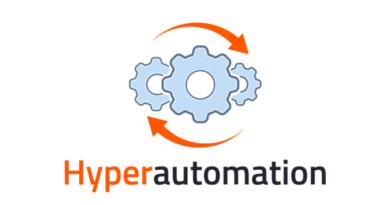The Art of Future Proof: Thriving in an Uncertain Tomorrow
In a rapidly changing world, the concept of “future proof” has gained prominence as a critical strategy for success. But what does it truly mean to future-proof yourself, your business, or even society? More importantly, how can we prepare for a future that is inherently unpredictable? This blog will explore the essence of future-proofing and provide practical strategies for staying ahead of the curve.
What Is Future Proof?
Future-proof is the practice of anticipating and preparing for changes, challenges, and opportunities that may arise in the future. It’s about building resilience and adaptability to not just survive but thrive in the face of uncertainty. Whether applied to personal development, business, or broader societal issues, future-proofing ensures longevity and relevance in an ever-evolving world.
Key Components of Future Proof:
- Lifelong Learning and Adaptability:
The skills and knowledge that are valuable today might become obsolete tomorrow. Future-proofing requires a commitment to lifelong learning and a willingness to adapt to new realities. This means continuously updating your skill set, staying informed about industry trends, and being open to change. By embracing a growth mindset, you can remain relevant in a rapidly shifting landscape. - Smart Use of Technology:
Technology can be both an opportunity and a challenge. To future-proof your efforts, it’s crucial to stay informed about emerging technologies and to invest in those that can drive innovation and efficiency. However, it’s equally important to be mindful of potential risks, such as cybersecurity threats and the impact of automation on the workforce. A balanced approach to technology can help you harness its benefits while mitigating potential downsides. - Cultivating Innovation:
Innovation is at the heart of future-proofing. Whether you’re running a business or managing your career, fostering a culture of creativity and experimentation is key to staying ahead. This could involve exploring new business models, developing novel products or services, or simply rethinking how you approach problems. Innovation is not just about invention—it’s about continuous improvement and finding new ways to add value. - Building Resilience:
Resilience is the capacity to endure challenges and rebound with renewed strength.To future-proof your life or business, it’s important to develop strategies that enhance your resilience. This could involve diversifying income streams, creating contingency plans, or building strong support networks. Resilience is not just about surviving challenges—it’s about emerging stronger and more capable on the other side. - Prioritizing Sustainability:
In an era of environmental and social challenges, sustainability is no longer optional—it’s essential. Future-proofing involves integrating sustainable practices into your operations and decision-making processes. Whether you’re reducing your carbon footprint, supporting social equity, or promoting ethical practices, sustainability ensures that your efforts remain viable and aligned with the needs of the future. - Staying Global and Flexible:
The world is becoming increasingly interconnected, and global shifts can have profound impacts on local realities. To future-proof your strategies, it’s important to stay informed about global trends and to be ready to adapt to new circumstances. This might involve exploring new markets, adjusting your business model, or rethinking your approach to leadership. Flexibility and global awareness are key to navigating the complexities of the modern world.

Practical Applications of Future Proof:
Here are some examples of how future proof can be applied in different contexts:
- In Business:
Companies that weather disruptions, such as those seen during the COVID-19 pandemic, are often those that have embraced digital transformation, innovation, and customer-centric strategies. Future-proof businesses are agile, tech-savvy, and always looking for ways to stay ahead of the competition. - In Personal Development:
Individuals who prioritize continuous learning, adaptability, and resilience are better equipped to handle life’s uncertainties. Future-proofing your personal development means being proactive in acquiring new skills, staying informed about industry trends, and building a strong network of support. - In Technology:
Leading tech companies stay ahead by constantly innovating and anticipating market needs. Future-proof technology strategies involve not only adopting the latest tools but also ensuring that systems are secure, scalable, and sustainable. Staying at the forefront of technological advancements is key to long-term success.
Looking Beyond: Future Proof for the Long Term
As we look to the future, the importance of future-proofing will only grow. The convergence of technologies such as artificial intelligence, robotics, and biotechnology, along with the challenges posed by climate change and global inequality, will require new approaches to resilience and adaptability. The future will belong to those who are not just prepared for change but are actively shaping it.
To truly future-proof, it’s essential to adopt a comprehensive approach that combines continuous learning, technological savvy, innovation, resilience, and sustainability. This isn’t a one-time task—it’s an ongoing journey of growth and adaptation. By staying curious, embracing change, and always striving for improvement, you can navigate the uncertainties of tomorrow with confidence and success.
Future-proofing is about more than just preparing for the unknown—it’s about creating a future where you can thrive, no matter what challenges arise. So, start today by investing in yourself, your business, and your community, and build a future that is resilient, innovative, and sustainable.
FAQs:
1. What exactly does “future-proof” entail?
“Future-proof” means preparing proactively for potential future developments and challenges. It involves creating strategies or systems that stay relevant and effective, no matter how circumstances evolve, ensuring that you can sustain success and adaptability over time.
2. Why is future-proofing essential?
Future-proofing is vital because it equips individuals and organizations to handle uncertainties and rapid changes. By anticipating and preparing for future shifts, you reduce the risk of becoming outdated, strengthen your resilience, and position yourself for ongoing growth and relevance.
3. How can individuals ensure their careers are future proofed?
To future-proof your career, focus on continuous skill development and stay updated on industry trends. Embrace lifelong learning, diversify your expertise, and be flexible in adapting to new challenges. These steps help you remain competitive and resilient in a changing job market.
4. What role does technology play in future proof?
Technology is central to future-proofing, providing tools and solutions that enhance efficiency and adaptability. Staying current with technological advancements, investing in robust and scalable tech solutions, and leveraging innovation are crucial for maintaining relevance and competitive edge.
5. What steps can businesses take to future proof their operations?
Businesses can future-proof by fostering a culture of innovation, embracing technological advancements, and developing flexible strategies. Key actions include diversifying offerings, adapting to market changes, building financial resilience, and prioritizing sustainable and customer-focused approaches.
6. What pitfalls should be avoided in future proof?
Avoid common pitfalls such as focusing solely on immediate concerns, neglecting ongoing learning, ignoring emerging trends, and failing to adapt to changing environments. It’s important to stay proactive and avoid complacency to maintain long-term success.
7. How does sustainability enhance future proof?
Sustainability is a cornerstone of future-proofing as it addresses long-term environmental and social impacts. By adopting sustainable practices, you can mitigate risks related to resource depletion, regulatory changes, and shifting consumer preferences, while also boosting brand reputation and efficiency.
8. Why is innovation critical for future-proofing?
Innovation drives future-proofing by creating new solutions, products, and processes that address emerging challenges and capitalize on opportunities. Cultivating a culture of innovation helps organizations stay ahead of the curve and adapt to evolving market demands.
9. How can organizations evaluate their future-proofing efforts?
Organizations can assess their future-proofing strategies through regular risk evaluations, monitoring industry trends, and reviewing the effectiveness of current practices. Engaging in scenario planning, gathering stakeholder feedback, and comparing against industry benchmarks offer valuable insights.
10. Can you provide examples of effective future-proofing?
Effective future-proofing examples include tech giants like Apple and Google, known for their continuous innovation and adaptability, and individuals who shift their careers by acquiring new skills and exploring emerging fields. In sustainability, businesses adopting circular economy principles demonstrate successful future-proofing by minimizing waste and conserving resources.




